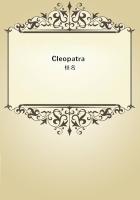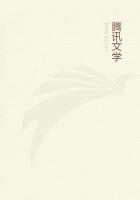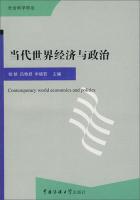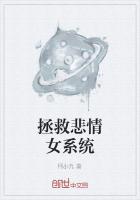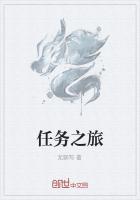WEST POINT--GRADUATION.
In the winter of 1838-9 I was attending school at Ripley, only ten miles distant from Georgetown, but spent the Christmas holidays at home. During this vacation my father received a letter from the Honorable Thomas Morris, then United States Senator from Ohio. When he read it he said to me, Ulysses, I believe you are going to receive the appointment." "What appointment?" I inquired. To West Point; I have applied for it." "But I won't go," I said. He said he thought I would, AND I THOUGHT SO TOO, IF HE DID. I really had no objection to going to West Point, except that I had a very exalted idea of the acquirements necessary to get through. I did not believe I possessed them, and could not bear the idea of failing. There had been four boys from our village, or its immediate neighborhood, who had been graduated from West Point, and never a failure of any one appointed from Georgetown, except in the case of the one whose place I was to take. He was the son of Dr. Bailey, our nearest and most intimate neighbor. Young Bailey had been appointed in 1837. Finding before the January examination following, that he could not pass, he resigned and went to a private school, and remained there until the following year, when he was reappointed. Before the next examination he was dismissed. Dr. Bailey was a proud and sensitive man, and felt the failure of his son so keenly that he forbade his return home. There were no telegraphs in those days to disseminate news rapidly, no railroads west of the Alleghanies, and but few east; and above ail, there were no reporters prying into other people's private affairs. Consequently it did not become generally known that there was a vacancy at West Point from our district until I was appointed. I presume Mrs. Bailey confided to my mother the fact that Bartlett had been dismissed, and that the doctor had forbidden his son's return home.
The Honorable Thomas L. Hamer, one of the ablest men Ohio ever produced, was our member of Congress at the time, and had the right of nomination. He and my father had been members of the same debating society (where they were generally pitted on opposite sides), and intimate personal friends from their early manhood up to a few years before. In politics they differed.
Hamer was a life-long Democrat, while my father was a Whig. They had a warm discussion, which finally became angry--over some act of President Jackson, the removal of the deposit of public moneys, I think--after which they never spoke until after my appointment. I know both of them felt badly over this estrangement, and would have been glad at any time to come to a reconciliation; but neither would make the advance. Under these circumstances my father would not write to Hamer for the appointment, but he wrote to Thomas Morris, United States Senator from Ohio, informing him that there was a vacancy at West Point from our district, and that he would be glad if I could be appointed to fill it. This letter, I presume, was turned over to Mr. Hamer, and, as there was no other applicant, he cheerfully appointed me. This healed the breach between the two, never after reopened.
Besides the argument used by my father in favor of my going to West Point--that "he thought I would go"--there was another very strong inducement. I had always a great desire to travel. I was already the best travelled boy in Georgetown, except the sons of one man, John Walker, who had emigrated to Texas with his family, and immigrated back as soon as he could get the means to do so. In his short stay in Texas he acquired a very different opinion of the country from what one would form going there now.
I had been east to Wheeling, Virginia, and north to the Western Reserve, in Ohio, west to Louisville, and south to Bourbon County, Kentucky, besides having driven or ridden pretty much over the whole country within fifty miles of home. Going to West Point would give me the opportunity of visiting the two great cities of the continent, Philadelphia and New York. This was enough. When these places were visited I would have been glad to have had a steamboat or railroad collision, or any other accident happen, by which I might have received a temporary injury sufficient to make me ineligible, for a time, to enter the Academy. Nothing of the kind occurred, and I had to face the music.
Georgetown has a remarkable record for a western village. It is, and has been from its earliest existence, a democratic town. There was probably no time during the rebellion when, if the opportunity could have been afforded, it would not have voted for Jefferson Davis for President of the United States, over Mr. Lincoln, or any other representative of his party; unless it was immediately after some of John Morgan's men, in his celebrated raid through Ohio, spent a few hours in the village. The rebels helped themselves to whatever they could find, horses, boots and shoes, especially horses, and many ordered meals to be prepared for them by the families. This was no doubt a far pleasanter duty for some families than it would have been to render a like service for Union soldiers. The line between the Rebel and Union element in Georgetown was so marked that it led to divisions even in the churches. There were churches in that part of Ohio where treason was preached regularly, and where, to secure membership, hostility to the government, to the war and to the liberation of the slaves, was far more essential than a belief in the authenticity or credibility of the Bible. There were men in Georgetown who filled all the requirements for membership in these churches.
Yet this far-off western village, with a population, including old and young, male and female, of about one thousand--about enough for the organization of a single regiment if all had been men capable of bearing arms--furnished the Union army four general officers and one colonel, West Point graduates, and nine generals and field officers of Volunteers, that I can think of.

